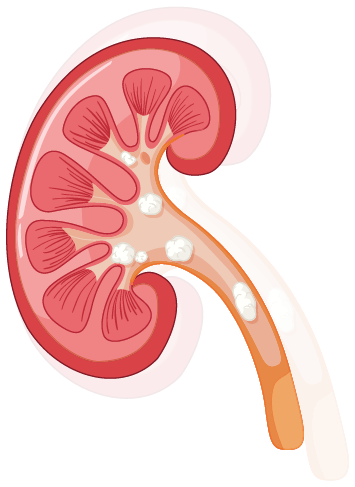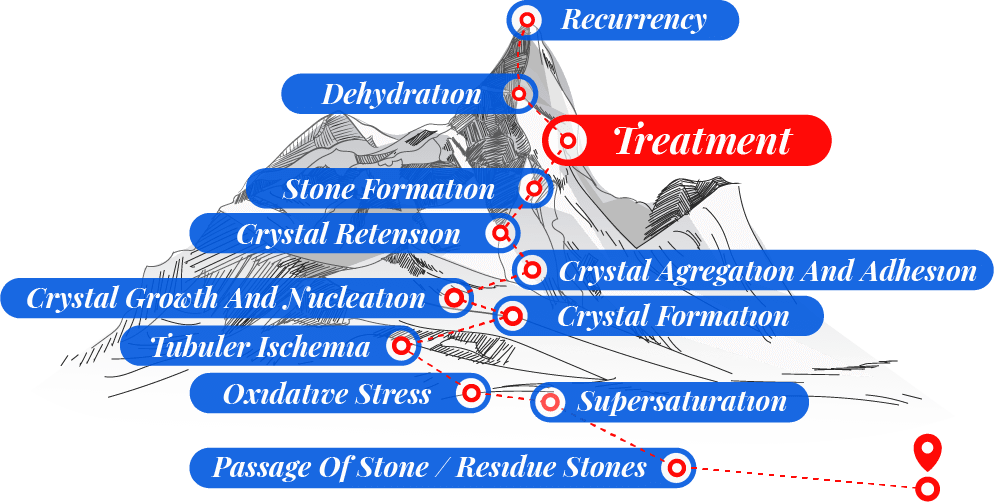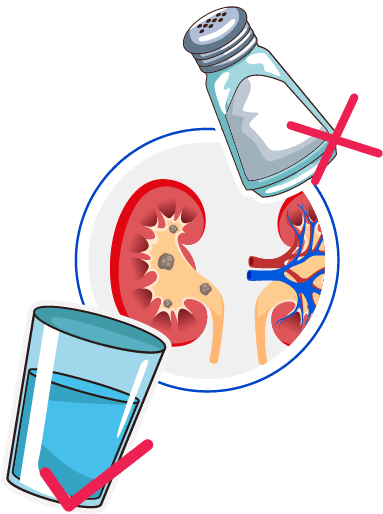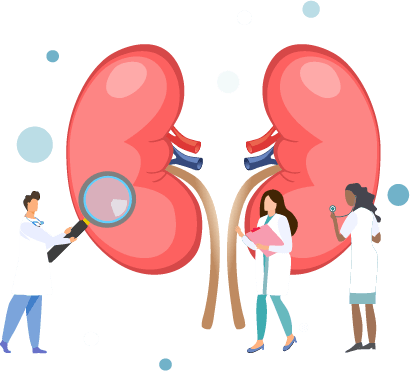Stone Disease

stone disease
Stone Disease
The most important task of the kidneys is to remove harmful substances coming from the blood from the body. While doing this task, some minerals that are thrown out and the crystals formed by the combination of these minerals form kidney stones.
Under normal conditions, these crystals are excreted in the urine from the urinary tract without any problems. However, if the crystals collapse and merge with each other in the kidney canals for any reason, the stone formation process begins. This process is multi-step and can be triggered by many risk factors.
stone disease
Stone Disease
The most important task of the kidneys is to remove harmful substances coming from the blood from the body. While doing this task, some minerals that are thrown out and the crystals formed by the combination of these minerals form kidney stones.
Under normal conditions, these crystals are excreted in the urine from the urinary tract without any problems. However, if the crystals collapse and merge with each other in the kidney canals for any reason, the stone formation process begins. This process is multi-step and can be triggered by many risk factors.

stone disease
Stone Disease
formation stages


in stone disease
What are the symptoms
seen in stone disease?

Severe flank pain

Fever

Nausea

Frequent urination

Blood in the urine

Painful urination
Gottlieb, M., Long, B., & Koyfman, A. (2018). The evaluation and management of urolithiasis in the ED: A review of the literature. The American Journal of Emergency Medicine, 36(4), 699–706. doi:10.1016/j.ajem.2018.01.003
stone disease
Stone Disease
What are the risk factors?

Low fluid intake: Insufficient fluid intake is one of the most important factors in kidney stone formation. If individuals living in hot climates and sweating excessively do not replace the water they have lost, the possibility of stone disease increases.

People who have had kidney stone problems in the past are more likely to recur kidney stones. In addition,If kidney stones are formed in individuals under the age of 25, the possibility of stone formation increases again.

Family history: Individuals with a family history of kidney stones are in the risk group for kidney stones.

Consuming high amounts of animal protein and foods containing low fiber is a risk factor.

Excessive amount of salt in the diet is a risk factor.



Overweight and obese people are at risk for kidney stone formation.

Since having an anatomically different kidney, urinary tract or urinary bladder structure may interfere with urine flow, stone formation can be seen more frequently in these individuals.

Drugs used to remove excess fluid from the body (Diuretics) may be a risk factor for stone formation.

Disorders such as frequent urinary tract infections, hyperparathyroidism, Crohn’s disease, Medullary Sponge Kidney and Dent disease may increase the risk of kidney stone formation.

Taking vitamin D and calcium supplements for a long time may cause the formation of kidney stones.
R Bartoletti , T Cai, N Mondaini, F Melone, F Travaglini, M Carini, M Rizzo; Epidemiology and risk factors in urolithiasis; Urol Int 2007;79 Suppl 1:3-7. doi: 10.1159/000104434.


